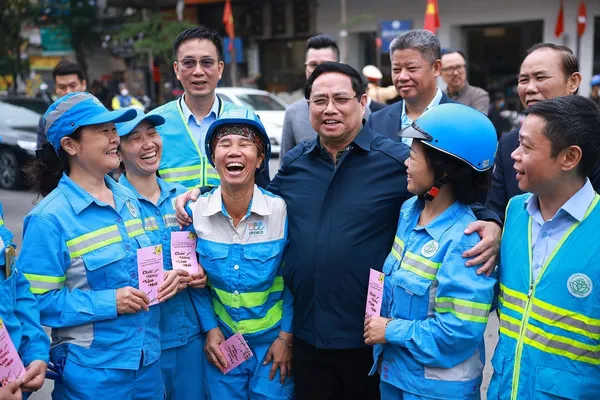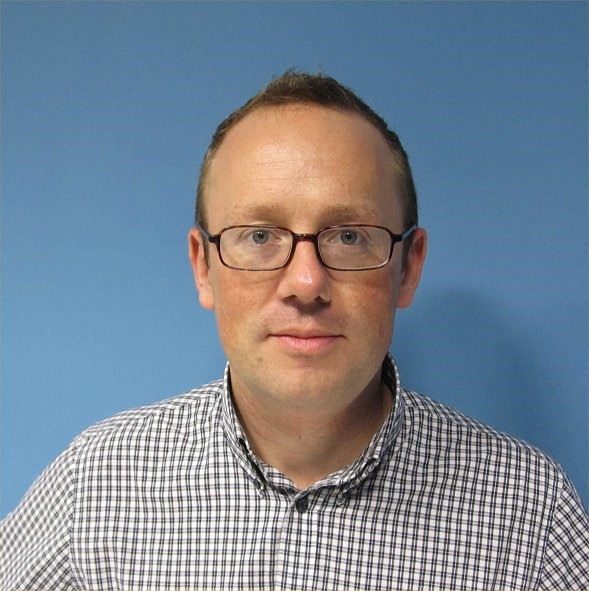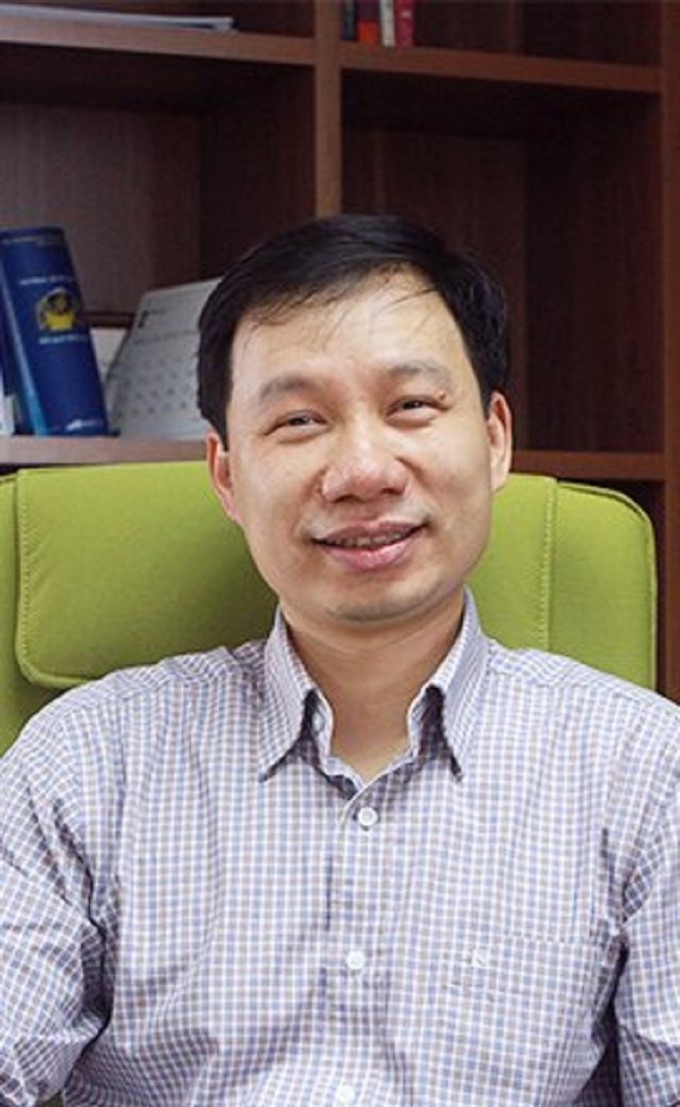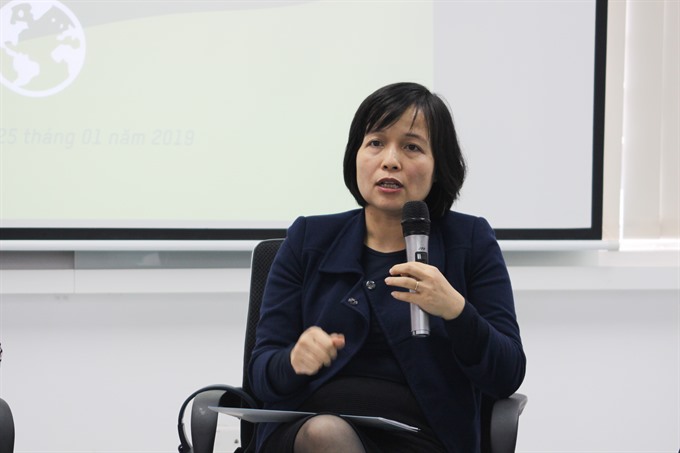.jfif) Opinion
Opinion

Foreign and Vietnamese experts talk to Việt Nam News reporter Khánh Dương about the gap between the rich and the poor in Việt Nam and recommendations for this concerning problem.
 |
| Max Lawson. — Photo courtesy of Oxfam |
Inequality in Việt Nam is growing and the rich are major beneficiaries of economic growth policies. What is your assessment on inequalities in Việt Nam?
Max Lawson, head of policy department, Oxfam International:
Inequality is a problem and it is growing in Việt Nam. There is certainly a perception from the Vietnamese public that there is a growing group of very rich people. The gap between the rich and the poor is becoming a concern.
When we talk to ordinary Vietnamese people our research shows they see inequality in everyday life not just about whether you have a bigger car, a bigger house but also about whether you have better healthcare or education, better opportunities for children.
Nguyễn Việt Cường, deputy director of Mekong Development Research Institute:
After 20 years of economic reform, Việt Nam’s economic growth depends on global economic development. The open economy of Việt Nam has allowed a growing number of enterprises to get rich quick by benefiting from economic growth.
Economic growth has brought more benefits to the rich. Unless the Government launch inclusive development policies, inequalities in Việt Nam will be widened.
We have also witnessed unequal investment in education and differences of education quality. Official statistics show that in Việt Nam, spending on education of 20 per cent of the richest people is ten times bigger than education investment of 20 per cent of the poorest. Poor people receive financial assistance in education but the statistics still demonstrate a gap in education spending.
Nguyễn Khánh Phương, head of health economics department, Health Strategy and Policy Institute:
In the healthcare sector, Việt Nam has done quite well in terms of universal healthcare coverage by getting 73 points compared to 69 points of the world’s average. The healthcare coverage in Việt Nam is higher than those of other Asian countries.
When we talk about healthcare coverage, it is not only the number but also who is covered and who is not covered.
Personal spending in healthcare services varies between groups of people with different incomes. There are obvious differences in the level of accessing healthcare services between the low income and high incomes groups.
Less than 40 per cent of low-income pregnant women have four health check-ups during their pregnancy compared to 95 per cent of high-income pregnant women.
 |
| Nguyễn Việt Cường. |
What are the impacts of inequality on Việt Nam’s efforts to alleviate poverty and develop a fair and equal economy?
Nguyễn Việt Cường:
It is said the inequalities are not good for economic development. General statistics reveal that inequality levels remain normal in localities that achieved positive economic growth and poverty reduction results. By contrast, the provinces and cities with slower economic growth pace have a higher level of inequalities.
Many studies point out the power of public services, especially education and health services, to fight inequality and alleviate poverty. What actions should be taken to ensure inclusive public services for all people, especially vulnerable groups?
Nguyễn Khánh Phương :
I think we should invest in improving healthcare quality at commune and district levels so the local healthcare sector is capable of providing quality services. 70 to 80 per cent of diseases can be treated at local level.
State spending on health in recent years has increased to 9 per cent of the total State budget but we are still struggling to balance health insurance collection and spending.
The most important thing is not to increase budget but answer the question for what purposes money will be poured in, in order to effectively and equally make use of the investment?
 |
| Nguyễn Khánh Phương. — Photo courtesy of Oxfam |
The Vietnamese Government has encouraged the mobilisation of resources from the private sector to attract investment or so-called ‘socialisation’. Is socialisation a recommendation for Việt Nam for better educational and healthcare services?
Nguyễn Khánh Phương:
I think it’s good to call for resources from the business sector and individuals. But a number of healthcare policies that aim at socialisation have potential risks, for example, hospital autonomy. The autonomy requires hospitals to call for private investment. Revenues of the hospital affects doctors’ incomes, leading to the fact that doctors prescribe high-cost or profittable medicine in order to increase revenue.
From global experience, can you share recommendations for Việt Nam to reduce inequality?
Max Lawson:
There are many things that Governments like Việt Nam’s can do to ensure the gap between the rich and the poor is not too big. One of them is to ensure the richest people are paying a fair share of tax. That’s not happening in many countries.
The second is to ensure everybody gets access to high quality education and healthcare. Increasingly in Việt Nam we see the situation where education of your children or access to medicine or doctors is influenced by how much money you have.
We don’t think it is right that your bank balance or how rich you are should dictate whether you live or die or whether you have the best medical care. We think we can have good-quality healthcare for everybody, rich and poor. That’s the experience of countries like Thailand where they have very good universal healthcare which is free for all types of citizens. We think that’s quite possible and we recommend that to Việt Nam.
There is also a good example on tax . President Moon Jae-in of South Korea just increased taxes on big corporations and richest Koreans because he is worried about growing poverty. — VNS




